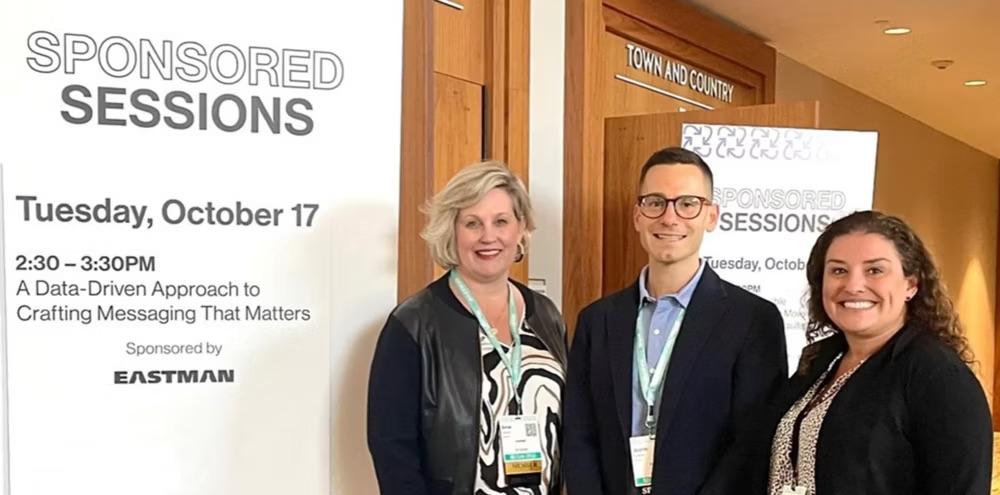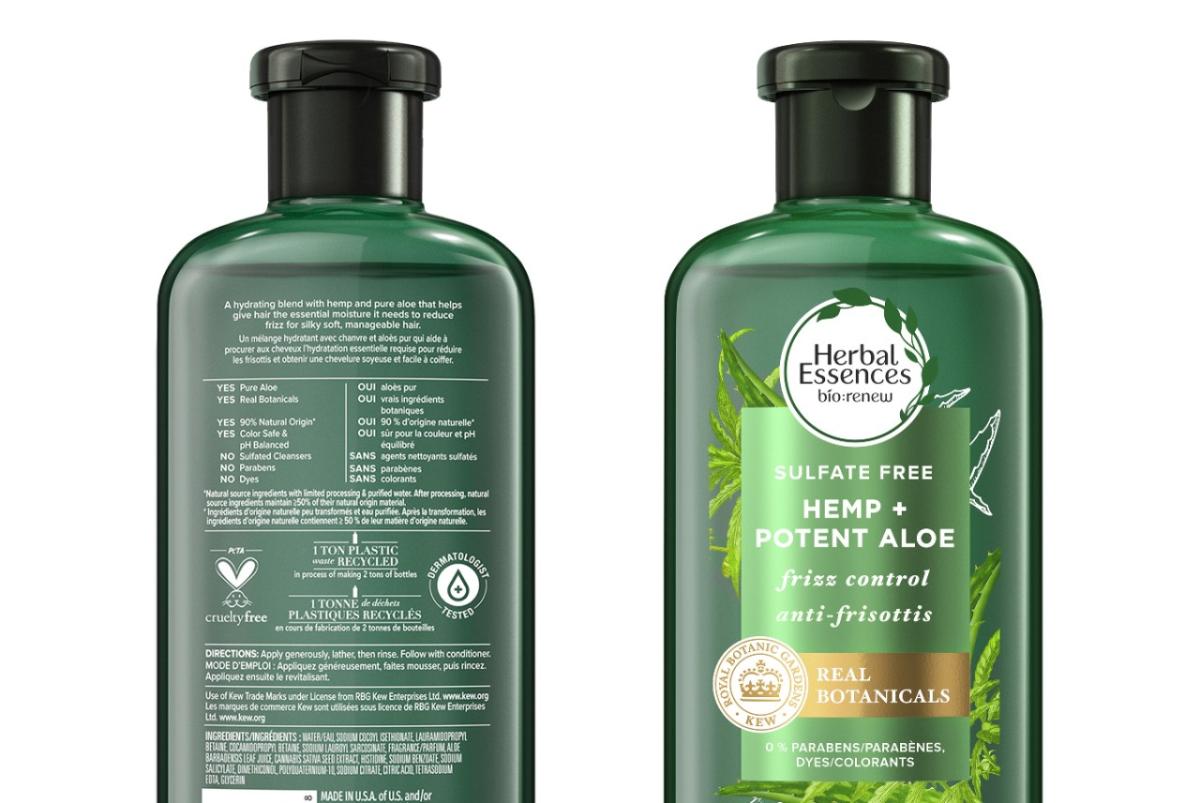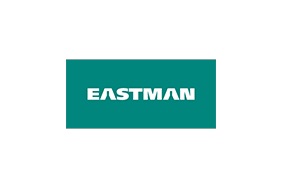Authenticity and Partnerships Are Key to Sustainable Messaging
Procter & Gamble and Eastman representatives discuss collaboration benefits at Sustainable Brands 2023.
Published 04-18-24
Submitted by Eastman

Brands need authentic, research-based messaging to sell sustainable materials. That’s the message Eastman and Procter & Gamble shared at a joint breakout session at the Sustainable Brands 2023 conference in San Diego. The companies focused on their partnership for data-driven sustainability marketing.
“We know sustainability alone doesn’t sell,” said Justin Coates, global consumer insights and marketing leader at Eastman. “It seals the deal, but customers value other aspects like safety and performance. Authenticity is the key to sustainability messaging. If you can communicate those features and seal the deal with sustainability, you create brand loyalty. Our partners want to win customers, and we know the formula to do that through years of experience and insights.”
Coates and Anne Morris, senior marketing communications account manager for circular integration at Eastman, spoke during the session. They were joined by Rachel Zipperian, scientific communication director from P&G.
Eastman and P&G have collaborated since 2021, when P&G’s hair care brand, Herbal Essences, was looking for a partner to help it increase the sustainability of its primary packaging. Herbal Essences scientists found Eastman’s molecular recycling technologies and quickly recognized Eastman was the strong partner they needed for both product materials and sustainability messaging.
Herbal Essences worked with Eastman to create bottles made with 50% certified recycled content.* The companies have continued to collaborate and recently completed customized consumer research using insights from 4,000 consumers across the U.S., U.K., Germany and France. They identified the top sustainability claims that resonated with consumers of various P&G hair care and oral care brands. The research found brands should make their products’ sustainability benefits specific and tangible to the consumer.

Together, Eastman, Herbal Essences and other P&G brands will use these insights to craft authentic sustainability messaging that resonates with consumers and strengthens brand loyalty.
“If you're shopping for hair care, the first thing you want to know about is not what's in the bottle content,” Zipperian said during the session, which was sponsored by Eastman. “You want to know, ‘What's it going to do for my hair?’ So, figuring out the priority of communication is also something that's challenging, and the Eastman team and their insights have helped us understand that sometimes one message doesn't fit everyone.”
During the Sustainable Brands session, the Eastman and P&G representatives discussed how to create strategic sustainability messages that address consumer needs and are connected to a larger corporate sustainability story. Attendees learned how to differentiate their messaging through brand voice and consumer and market insights.
"At Eastman, we know collaboration fuels sustainable solutions,” Morris said. “The high level of interest in this topic we saw at Sustainable Brands shows brands and marketers are increasingly focused on how best to communicate their sustainability story. Eastman aims to be a valuable partner in the circular economy space, and it was a privilege to share our work with P&G.”
Sustainable Brands brings together brand marketing and sustainability leaders from across the globe. The conference featured sessions focused on marketing, sustainability, inclusion and diversity, and products.
*Recycled content allocated via ISCC-certified mass balance approach.

Eastman
Eastman
Founded in 1920, Eastman is a global specialty materials company that produces a broad range of products found in items people use every day. With the purpose of enhancing the quality of life in a material way, Eastman works with customers to deliver innovative products and solutions while maintaining a commitment to safety and sustainability. The company’s innovation-driven growth model takes advantage of world-class technology platforms, deep customer engagement, and differentiated application development to grow its leading positions in attractive end markets such as transportation, building and construction, and consumables. As a globally inclusive and diverse company, Eastman employs approximately 14,000 people around the world and serves customers in more than 100 countries. The company had 2023 revenue of approximately $9.2 billion and is headquartered in Kingsport, Tennessee, USA.
About Eastman in the circular economy: In 2019, Eastman became the first company to begin commercial-scale chemical recycling for a broad set of waste plastics that would otherwise be landfilled or, worse, wind up in the environment. Eastman's molecular recycling technologies can process waste plastics traditional mechanical recycling methods cannot—including polyesters, polypropylene, polyethylene, and polystyrene—derived from a variety of sources, including single-use plastics, textiles, and carpet. These technologies provide a true circular solution of endless recycling for materials, allowing them to be reused repeatedly.
To learn more about how we’re working to make a more circular economy visit eastman.eco.
More from Eastman

